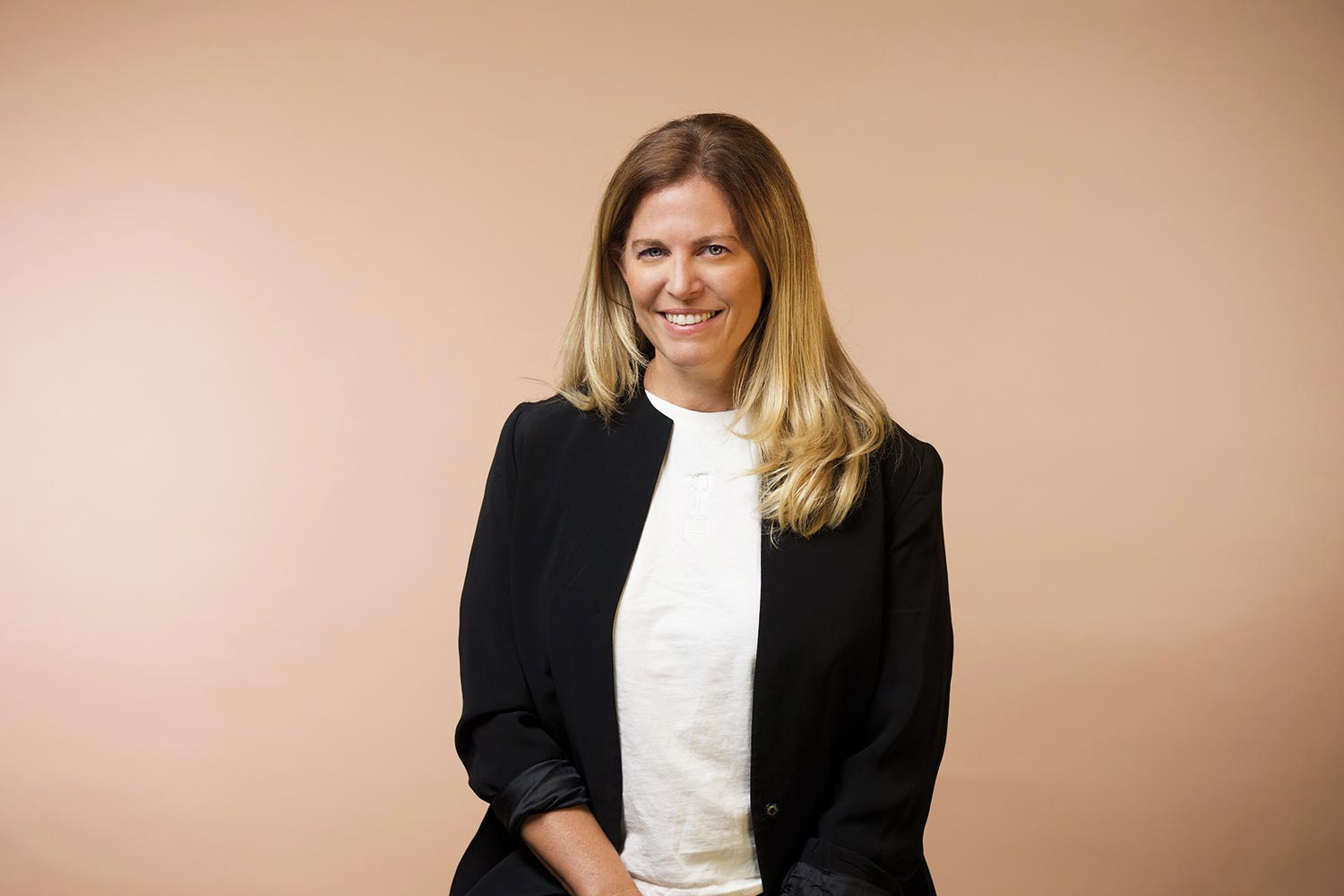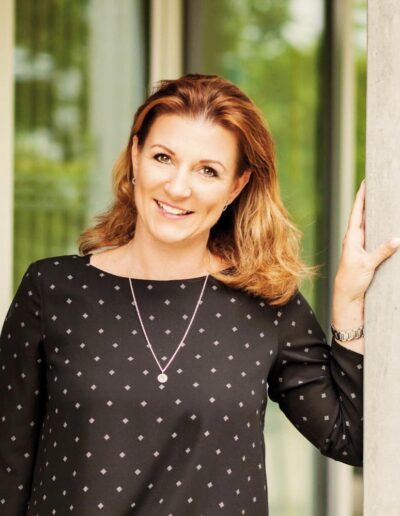Dalia was an international top marketer for P&G for 17 years. She thrived and just loved what she did and did what she loved. Once she left the company, she had an experience that opened new paths for her. Her last boss was a bully – and Dalia was stuck in her, what she calls “wounded femininity”. Can we coach ourselves out of a toxic environment? – Not. At. All. Dalia reveals this journey in her new book “Lead Like A Girl”.
Ladies Drive: Dalia, where were you born and raised?
Dalia Feldheim: I grew up in Israel. My mum’s Irish. My dad’s from London and they moved here a year before I was born. I lived here until I was 24 when I did my degree in psychology and business. I always knew I would go into psychology – I even had a scholarship and I wanted to go into brain research. And then P&G came to recruit because they were planning to open a subsidiary here. I went there and I loved everything I heard, decided to apply, and I got in.
So please tell me more maybe about the most important crossroads in your career. The good choices and the bad ones.
I think the first decision was to start with P&G. I think this company was a role model and still is a role model for heart-led, strength-led and people-first leadership, and I think I got the best school possible. So that was amazing, for 17 years, I was in a complete state of flow, loving everything that I was doing, as a director, I was creating campaigns that make an impact like my favourite one, “Like a Girl”. I was able to live my purpose every single day. In 2015 after working in GVA, Moscow and Singapore, the company wanted me back in GVA. My husband opened a start-up and I was determined to put my money where my mouth is on a dual career. I decided to leave, not my husband, but P&G. And I took on a role as CMO Asia for a great company in Singapore. Everything looked amazing. I did my due diligence. But one month into the role, I got a new boss, and he was a bully. And I think one of the decisions that I still contemplate until today is: should I have left earlier? – I was just determined that I’m not going to quit. Why should I quit? He should, right? The headhunter took me for a coffee. She asked me how it was going. I was very polite and loyal. And then she stopped me, and she said: “Listen, I know your boss is an asshole. I placed him there. You’re the only one who can change him”. – And I guess her intentions were good, but I had this mission of “I’m going to change him”. And I’m a coach. And I tried everything in my toolkit to coach up. I tried and I came with a lot of empathy and coaching. And I think that was a big mistake. I learned a very important lesson. Muhammad Ali says: “Float like a butterfly, sting like a bee”. I think us women, we come with a positive feminine approach, which is people and relationship and empathy. But sometimes you need to step into your positive masculine, into your assertiveness and say: no! Enough! And I think one thing was that I overstayed. I ended up staying there three toxic years. The more resilient I was, the more of a bully my boss became because it was a game for him. He was also determined to kind of bring me down. Instead of being confident, I became reliant on external validation. As women when we are challenged we either think we need to be as aggressive and become bitches to deal with it, or we fall into the wounded femininity, which is – we just keep becoming defensive or we’re reliant on external validation. So, I think I lost my magic, my mojo. And the mistake was not stepping into my assertive, which would also have meant putting in an ethics line complaint. When I came out of that experience, I actually went to study it.
But how did you end up, after that experience, to write your book “Lead Like A Girl”?
I studied organisational psychology, and my thesis was: “Can you coach yourself out of a toxic environment”. I learned: yes, you can build resilience, but no, you can’t coach yourself out of a toxic environment. Really, when it comes to toxic situations, there’s only one strategy, and that’s zero tolerance. So, studying that, I guess in one of the first case studies in INSEAD, I was asked to give a case study about this experience, and I stood in front of the class and it made me realise that I don’t want it to happen to anyone else. And then another thing happened when I was invited to speak in a women’s forum, I met Dr Tal Ben-Shahar, he’s kind of Harvard’s guru for positive psychology, and he heard me speak. And he was the one that said: Dalia, you need to write a book, and you need to speak on TED. He also invited me to join him in his Happiness Studies Academy, which he just started online, and that was a fascinating journey for me. Because suddenly, I had my stories, and I had all the science. I realised that everything I intuitively felt about leadership was grounded in research. My bully boss used to call me Miss Kumbaya, because I was too positive and I learned that it’s actually good for business to be Miss Kumbaya, and being positive creates an upward spiral of positivity, and it creates hope in an organisation and more. So, I always joke and say the book wrote itself, because I was sitting there trying to make sense of what happened to me.
But why “lead like a girl”?
So, it’s of course a provocation. First of all, it pays homage to one of the most famous campaigns that I was part of creating as a marketing director for P&G where we really wanted to change the meaning of words and establish “like a girl” to mean “be proud of who you are”. And so that’s one reason. But during my studies, I realised that actually leading like a girl is what is needed today! – The book is based on research by Folkman et al., and they tried to understand how come there’s not more women in leadership roles, are women not as effective as men? So, they did this research in 2012, and they found: women were as effective as men. The interesting thing, in 2019, seven years later, they repeated this research, and they found that not only were women as effective as men, but they also actually scored higher than men in 17 out of 19 leadership traits. So, all these soft skills, empathy, intuition, teamwork, etc, became ever more important as the world becomes more volatile, uncertain, work from home, agile, etc. So actually, it is a provocation, it has nothing to do with women versus men, but it’s a call for all leaders to connect to those more feminine traits that the world does not recognise enough. And those are the skills that are needed to succeed in the future of work.

Can you share the top three learnings that you share with your readers in the book?
I summarise my experience in a model, I call it five Ps: the first one is purpose. The second P is perseverance, which is all around these biggest failures, understanding their building blocks, understanding that it doesn’t mean you’re a failure, it means that you fail to acquire skill, a new skill that you need. The third is Power Up, and it’s all about energy. Because another thing that us women don’t realise, and we see it, burnout is the disease of the 21st century. And women are worse than men in the sense that we drive ourselves to burnout. We don’t spend enough time in what’s called selffulness. It’s not selfish to care of yourself so that you can continue giving. You can’t pour from an empty jug. All this mind-body link is really important. And we see the science behind it, it’s mind-blowing. The fourth and maybe the most important one is people. Again, the secret to happiness at work is: do you have a best friend at work? And I think that’s something that we as women are good at and we need to nourish, and we need to master. This section includes everything about relationship. From relationship with a spouse to managing politics in the workplace. Because the moment I realised that politics is just being strategic on how you achieve results and it doesn’t need to be dirty and it’s important to master it, because it is part of the world, to becoming an inspirational leader. And then the fifth P is my Miss Kumbaya. It’s positivity. And it’s not about being happy all the time, but it’s about understanding our emotions and why they’re important and being emotionally brave. It’s not per se emotion, it goes beyond emotional intelligence to really understand how can we be brave about bringing all emotions to work in a way that is good for business. So those are the five kind of key learnings that I found for thriving in the business world of today.
Was there something that you kind of met along the way while writing this book that really surprised you?
It’s a good question. Becoming politically savvy was one, that I realised that I need to step out of the situation or not take it personally. I kept on hearing, don’t take it personally, but of course it’s personal, but stepping out, understand it’s all interests. Okay, people have conflict in interests, and being politically savvy is finding that win-win between other interests and your interest. And I think what surprised me as well is the robustness of the science behind it. We know that bullying, we know that this command-and-control style of leadership is detrimental for the business long term. I mean, even when the bully leaves, there’s something that’s called “phantom bully”, because the culture is so toxic it continues even when the bully leaves for approx. 3 years.
Why do you think there are so many women who think they need to be a superwoman all the time?
There is a tendency to prioritise in the business world kind of behaviours, leadership styles that are the more aggressive, assertive. So, women need to over deliver. And then there are internal factors. One, it is the imposter syndrome that we do tend to second guess ourselves more often. I’ll tell you one fascinating research from INSEAD that they saw women coming to MBA equal to men. But in the very competitive environment of MBA, women drop more during the studies. So, they did one very simple intervention that before every assignment, they had something that reminded the women of their unique strengths. And they asked them to solve those challenges from their strengths. And since then, in that cohort, women and men finished at the same level. It was one of my male bosses, Paul Polman, the ex-CEO of Unilever, who said: “Instead of trying to fix women, let’s learn from them”. And I want to actually strengthen women to understand that these soft skills are even more important, that we do lead better, and we should be confident about our leadership styles. And then the third is perfectionism. And I think there is an element of being the perfect mum, the perfect employee. And we do see women demand more from themselves due to socialisation. I think that was a very big revelation for me as I became a mum. My son taught me the importance of “good enough”. In a sense that, I always have this saying, be there for the moments that count and make the moments you’re there, count.
And I think that is an important one where both men and women are frazzled, but we tend to be more perfect or desire perfectionism and just allow ourselves to understand that in some areas it’s good enough. Can we have it all? I always say yes, but not all at once! This desire to be super woman in every area is a recipe for burnout.

















